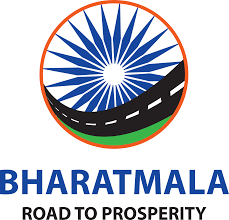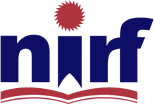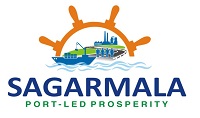 W
WOn 8 November 2016, the Government of India announced the demonetisation of all ₹500 and ₹1,000 banknotes of the Mahatma Gandhi Series. It also announced the issuance of new ₹500 and ₹2,000 banknotes in exchange for the demonetised banknotes. Prime Minister Narendra Modi claimed that the action would curtail the shadow economy and reduce the use of illicit and counterfeit cash to fund illegal activity and terrorism.
 W
WAtal Mission for Rejuvenation and Urban Transformation (AMRUT) was launched by Prime Minister of India Narendra Modi in June 2015 with the focus to establish infrastructure that could ensure adequate robust sewage networks and water supply for urban transformation by implementing urban revival projects. Rajasthan was the first state in the country to submit State Annual Action Plan under Atal Mission for Rejuvenation and Urban Transformation (AMRUT). The scheme Housing for All by 2022 and Atal Mission for Rejuvenation and Urban Transformation (AMRUT) were launched on the same day. The scheme is dependent with public–private partnership(PPP) model. If required, various other schemes like Swachh Bharat Mission, Housing for All 2022, along with the local state schemes like that related to water supply and sewerage and other infrastructure related schemes can be linked to AMRUT.
 W
WAtal Pension Yojana, formerly known as Swavalamban Yojana is a government-backed pension scheme in India, primarily targeted at the unorganised sector. It was mentioned in the 2015 Budget speech by the then Finance Minister Arun Jaitley. It was launched by Prime Minister Narendra Modi on 9 May in Kolkata.
 W
WBeti Bachao, Beti Padhao is a campaign of the Government of India that aims to generate awareness and improve the efficiency of welfare services intended for girls in India. The scheme was launched with an initial funding of ₹100 crore (US$14 million). It mainly targets the clusters in Uttar Pradesh, Haryana, Uttarakhand, Punjab, Bihar and Delhi.
 W
WBharatmala Pariyojana (Project) is a centrally-sponsored and funded Road and Highways project of the Government of India. The total investment for 83,677 km (51,994 mi) committed new highways is estimated at ₹5.35 lakh crore (US$75 billion), making it the single largest outlay for a government road construction scheme. The project will build highways from Gujarat, Rajasthan, Punjab, Haryana and then cover the entire string of Himalayan states - Jammu and Kashmir, Himachal Pradesh, Uttarakhand - and then portions of borders of Uttar Pradesh and Bihar alongside Terai, and move to West Bengal, Sikkim, Assam, Arunachal Pradesh, and right up to the Indo-Myanmar border in Manipur and Mizoram. Special emphasis will be given on providing connectivity to far-flung border and rural areas including the tribal and backward areas. Bharatmala Project will interconnect 550 District Headquarters through a minimum 4-lane highway by raising the number of corridors to 50 and move 80% freight traffic to National Highways by interconnecting 24 logistics parks, 66 inter-corridors (IC) of total 8,000 km (5,000 mi), 116 feeder routes (FR) of total 7,500 km (4,700 mi) and 7 north east Multi-Modal waterway ports.
 W
WChar Dham National Highway, is an under construction two-lane express National Highway with a minimum width of 10 metres in the Indian state of Uttarakhand. The under construction highway will complement the under construction Char Dham Railway by connecting the four holy places in Uttarakhand states namely Badrinath, Kedarnath, Gangotri and Yamunotri.The project includes 900 km national highways which will connect whole of Uttarakhand state.
 W
WDD Kisan is an Indian agriculture 24-hour television channel, which is owned by Doordarshan and was launched on 26 May 2015. The channel is dedicated to agriculture and related sectors, which disseminates real-time inputs to farmers on new farming techniques, water conservation and organic farming among other information.
 W
WDigital India is a campaign launched by the Government of India in order to ensure the Government's services are made available to citizens electronically by improved online infrastructure and by increasing Internet connectivity or making the country digitally empowered in the field of technology. The initiative includes plans to connect rural areas with high-speed internet networks. Digital India consists of three core components: the development of secure and stable digital infrastructure, delivering government services digitally, and universal digital literacy.
 W
WForum for India-Pacific Islands cooperation (FIPIC) is a multinational grouping developed in 2014 for cooperation between India and 14 Pacific Islands nations which include Cook Islands, Fiji, Kiribati, Marshall Islands, Micronesia, Nauru, Niue, Samoa, Solomon Islands, Palau, Papua New Guinea, Tonga, Tuvalu and Vanuatu. All heads of state or heads of government of the above countries met in Suva, Fiji in November 2014 for the first time where the annual summit was conceptualised.
 W
WGive Up LPG Subsidy is a campaign that was launched in March 2015 by the Indian government led by Prime Minister Narendra Modi. It is aimed at motivating LPG users who are able to afford to pay the market price for LPG to voluntarily surrender their LPG subsidy. As of 23 April 2016, 10 million people had voluntarily given up the subsidy. The surrendered subsidy is being redistributed by the government in order to provide cooking gas connections to poor families in rural households free of cost. Maharashtra, Uttar Pradesh, Karnataka, Delhi and Tamil Nadu are the top five states to give up the subsidy.
 W
WGovernment e Marketplace (GeM) is an online platform for public procurement in India. The initiative was launched on August 9, 2016 by the Ministry of Commerce and Industry, Government of India with the objective to create an open and transparent procurement platform for government buyers. The platform is owned by GeM SPV which is a 100 per cent Government-owned, non-profit company under the Ministry of Commerce and Industries, Government of India.
 W
WThe Indian 200-rupee note (₹200) is a denomination of the Indian rupee. Post 2016 Indian banknote demonetisation, the new currency notes have been announced by the Reserve Bank of India-- ₹2,000, ₹500, ₹200, ₹100, ₹50, ₹20 and ₹10.
 W
WPradhan Mantri Matri Vandana Yojana (PMMVY) is a maternity benefit program run by the government of India. It was introduced in 2017 and is implemented by the Ministry of Women and Child Development. It is a conditional cash transfer scheme for pregnant and lactating women of 19 years of age or above for the first live birth. It provides a partial wage compensation to women for wage-loss during childbirth and childcare and to provide conditions for safe delivery and good nutrition and feeding practices. In 2013, the scheme was brought under the National Food Security Act, 2013 to implement the provision of cash maternity benefit of ₹6,000 (US$84) stated in the Act. Presently, the scheme is implemented on a pilot basis in 53 selected districts and proposals are under consideration to scale it up to 200 additional 'high burden districts' in 2015–16. The eligible beneficiaries would receive the incentive given under the Janani Suraksha Yojana (JSY) for Institutional delivery and the incentive received under JSY would be accounted towards maternity benefits so that on an average a woman gets ₹6,000 (US$84)
 W
WKnow India Programme abbreviated as KIP is a government initiative by the Ministry of External Affairs, Government of India for the Indian diaspora between the age group of 18 to 30 years. It was launched on 8 January 2014, on the occasion of Pravasi Bharatiya Divas in New Delhi. The purpose of the Know India Programme is to help Persons of Indian Origin youths familiarize with their roots and contemporary India and provide them an exposure to the country of their origin. From 2016, six KIPs a year are being organised.
 W
WMake in India is an initiative by the Government of India to encourage companies to manufacture in India and incentivize dedicated investments into manufacturing. The policy approach was to create a conducive environment for investments, develop a modern and efficient infrastructure, and open up new sectors for foreign capital. The initiative targeted 25 economic sectors for job creation and skill enhancement, and aimed "to transform India into a global design and manufacturing hub."
 W
WMann Ki Baat is an Indian radio programme hosted by Prime Minister Narendra Modi in which he addresses the people of the nation on All India Radio, DD National and DD News. Since the first show on 3 October 2014, there have been 70 episodes. The 70th episode was aired on 25 October 2020.
 W
WMyGov is a citizen engagement platform founded by the Government of India to promote the active participation of Indian citizens in their country's governance and development. It is aimed at creating a common platform for Indian citizens to "crowdsource governance ideas from citizens". Its users discuss and contribute to various government projects and plans. It also allows users to upload documents in various formats. The website is hosted and managed by the National Informatics Centre (NIC). Prime Minister Narendra Modi stated that the aim was to reduce the long gap developed between the electorate and the Executive after being elected.
 W
WNational Common Mobility Card (NCMC), is an inter-operable transport card conceived by the Ministry of Housing and Urban Affairs of the Government of India. It was launched on 4 March 2019. The transport card enables the user to pay for travel, toll duties, retail shopping, and withdraw money.
 W
WThe National Institutional Ranking Framework (NIRF) is a methodology adopted by the Ministry of Education, Government of India, to rank institutions of higher education in India. The Framework was approved by the MHRD and launched by Minister of Human Resource Development on 29 September 2015. There are separate rankings for different types of institutions depending on their areas of operation like universities and colleges, engineering institutions, management institutions, pharmacy institutions and architecture institutions. The Framework uses several parameters for ranking purposes like resources, research, and stakeholder perception. These parameters have been grouped into five clusters and these clusters were assigned certain weightages. The weightages depend on the type of institution. About 3500 institutions voluntarily participated in the first round of rankings.
 W
WNational Unity Day is celebrated in India on 31 October. It was introduced by the Government of India in 2014. The day is celebrated to mark the birth anniversary of Sardar Vallabhai Patel.
 W
WThe NITI Aayog is a policy think tank of the Government of India, established with the aim to achieve sustainable development goals with cooperative federalism by fostering the involvement of State Governments of India in the economic policy-making process using a bottom-up approach. Its initiatives include "15-year road map", "7-year vision, strategy, and action plan", AMRUT, Digital India, Atal Innovation Mission, Medical Education Reform, agriculture reforms, Indices Measuring States’ Performance in Health, Education and Water Management, Sub-Group of Chief Ministers on Rationalization of Centrally Sponsored Schemes, Sub-Group of Chief Ministers on Swachh Bharat Abhiyan, Sub-Group of Chief Ministers on Skill Development, Task Forces on Agriculture and up of Poverty, and Transforming India Lecture Series.
 W
WPolice Mitra or Friends of Police is an initiative of the State police in different states of India. Civilian citizens having 'good social record' like ex-army men, students, advocates and housewives are responsible in tying up with the police beat staff to look after the law and order, traffic and crowd management, safety of women prevention of crime and informing about suspected elements around their area. The arm bands and ID cards provided to police mitras give them the authority to help the police in fighting crime without any salary. Police Mitra Kaksh were also set up in Haryana. Police Mitras also assist Government Railway Police in railway stations of Mumbai. Police Mitras are also used in maintaining peace in disturbed areas by police department.
 W
WPradhan Mantri Jan Dhan Yojana is a financial inclusion program of the Government of India open to Indian citizens, that aims to expand affordable access to financial services such as bank accounts, remittances, credit, insurance and pensions. This financial inclusion campaign was launched by the Prime Minister of India Narendra Modi on 28 August 2014. He had announced this scheme on his first Independence Day speech on 15 August 2014.
 W
WPradhan Mantri Kaushal Vikas Yojana (PMKVY) is a skill development initiative scheme of the Government of India for recognition and standardisation of skills.
 W
WPradhan Mantri Kisan Sammann Nidhi is an initiative by the government of India in which all farmers will get up to ₹6,000 (US$84) per year as minimum income support. The initiative was to be announced by Piyush Goyal during the 2019 Interim Union Budget of India on 1 February 2019. The scheme will cost ₹75,000 crore (US$11 billion) per annum and will come in effect from December 2019. ₹6,000 per year will be paid to each eligible farmer in three instalments and will be deposited directly to their bank accounts.
 W
WThe Sagarmala Programme is an initiative by the government of India to enhance the performance of the country's logistics sector. The programme envisages unlocking the potential of waterways and the coastline to minimize infrastructural investments required to meet these targets. It entails investing Rs. 8.5 trillion (2018) to set up new mega ports, modernizing India's existing ports, developing of 14 Coastal Economic Zones (CEZs) and Coastal Economic Units, enhancing port connectivity via road, rail, multi-modal logistics parks, pipelines & waterways and promoting coastal community development, with the aim of boosting merchandise exports by US$110 billion and generating around 10,000,000 direct and indirect jobs. The Sagarmala Programme is the flagship programme of the Ministry of Shipping to promote port-led development in the country by exploiting India's 7,500 km long coastline, 14,500 km of potentially navigable waterways and its strategic location on key international maritime trade routes. Sagarmala aims to modernize India's Ports so that port-led development can be augmented and coastlines can be developed to contribute to India's growth. It also aims at "transforming the existing Ports into modern world-class Ports and integrate the development of the Ports, the Industrial clusters and hinterland and efficient evacuation systems through road, rail, inland and coastal waterways resulting in Ports becoming the drivers of economic activity in coastal areas."
 W
WSaurashtra Narmada Avtaran Irrigation (SAUNI) is a project launched by Indian Prime Minister Narendra Modi with objective of filling 115 major dams by diverting floodwaters overflowing from the Sardar Sarovar Dam across the Narmada river to the drought areas.
 W
WNational Smart Cities Mission is an urban renewal and retrofitting program by the Government of India with the mission to develop smart cities across the country, making them citizen friendly and sustainable. The Union Ministry of Urban Development is responsible for implementing the mission in collaboration with the state governments of the respective cities. The mission initially included 100 cities, with the deadline for completion of the projects set between 2019 and 2023.
 W
WThe South Asia Satellite, formerly known as SAARC Satellite, is a geostationary communications and meteorology satellite operated by the Indian Space Research Organisation for the South Asian Association for Regional Cooperation (SAARC) region. The satellite was launched on 5 May 2017. During the 18th SAARC summit held in Nepal in 2014, Indian Prime Minister Narendra Modi mooted the idea of a satellite serving the needs of SAARC member nations as a part of his neighbourhood first policy. Afghanistan, Bangladesh, Bhutan, Maldives, Nepal and Sri Lanka are the users of the multi-dimensional facilities provided by the satellite.
 W
WSwachh Bharat Mission (SBM), Swachh Bharat Abhiyan (SBA), or Clean India Mission is a country-wide campaign initiated by the Government of India in 2014 to eliminate open defecation and improve solid waste management (SWM). Phase 1 of the mission lasted till October 2019. Phase 2 will be implemented between 2020-21 and 2024-25.
 W
WUDAN-RCS, UDAN is a regional airport development and "Regional Connectivity Scheme" (RCS) of Government of India, with the objective of "letting the common citizen of the country fly", aimed at making air travel affordable and widespread, to boost inclusive national economic development, job growth and air transport infrastructure development of all regions and states of India. At the beginning of the scheme, out of total 486 airports, 406 were participating unserved airports, 27 were well served airports out of 97 non-RCS airports and 12 were operational airports out of 18 participating underserved regional operational airports with regular fixed-wing scheduled flights. UDAN scheme will add to this number by expediting the development and operationalisation of India's potential-target of nearly 425 unserved, underserved, and mostly underdeveloped regional airports with regular scheduled flights.